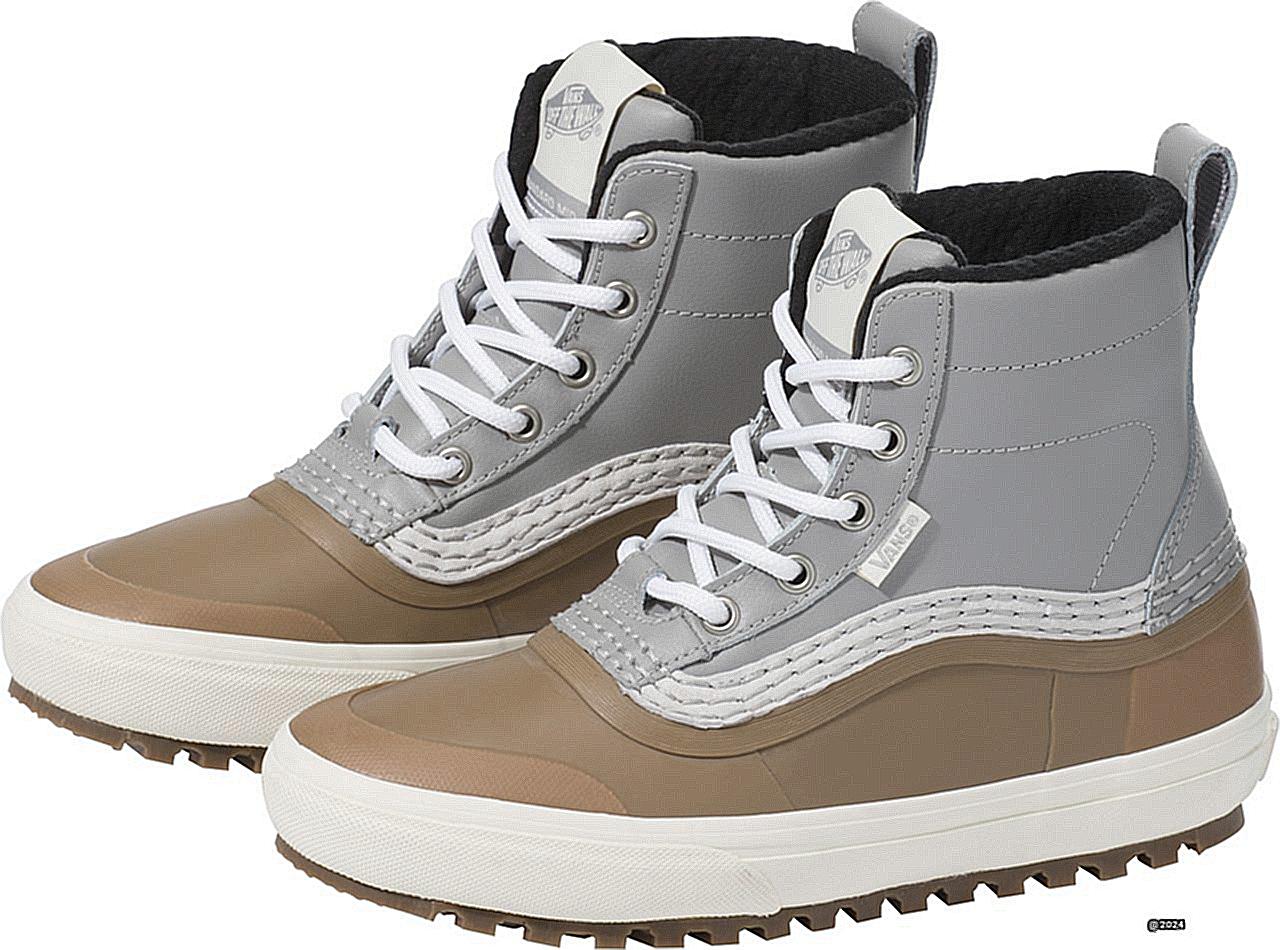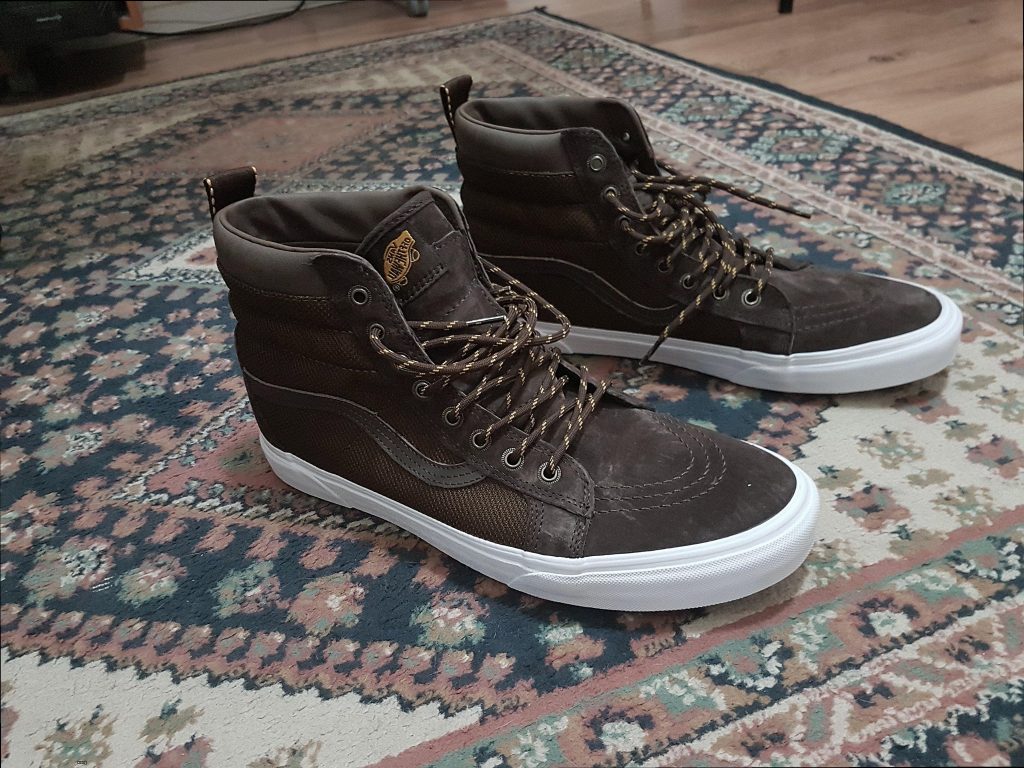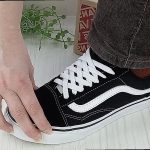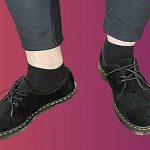Not at all. Most Vans shoes are not waterproof. Vans shoes primarily prioritize style and comfort, utilizing materials such as canvas and suede that rapidly absorb water. You cannot use these materials in wet situations, even though they look good and last a long time. If you go outside in the rain with regular Vans on, your feet might get wet.
But some Vans models, like the MTE (Mountain Edition) or those with GORE-TEX® technology, are made to not get wet. These styles are both stylish and useful because they offer more safety in wet places. Here’s what you should remember:
- Standard Vans: Stylish but not waterproof.
- MTE/GORE-TEX® Models: Offer better water resistance.
For those who love their Vans but worry about moisture, consider picking up these specialized models or a reliable waterproof spray for added protection. Keep reading to learn more about caring for your favorite kicks and navigating wet conditions with style.
Are Vans Shoes Waterproof?
Contents
- 1 Are Vans Shoes Waterproof?
- 2 Can Water Damage Your Van Shoes?
- 3 How Do Different Vans Materials Hold Up Against Water?
- 4 Are MTE Worth It? Can They Be a Good Option for the Rainy Season?
- 5 How Do Vans Compare to Other Brands for Waterproofing?
- 6 How To Make Your Vans Shoes Waterproof?
- 7 Will Waterproof Spray Damage Your Shoes?
- 8 Conclusion
Vans shoes are renowned for their iconic style and robust construction, yet they fail to keep your feet dry. Vans shoes commonly use canvas and leather, but their construction does not ensure water resistance.

These materials are known to soak up water, which can make your feet wet if it rains. They look appealing and last a long time, but they are not the best choice for wet circumstances.
But Vans does have some choices, such as the MTE (Mountain Edition) line, which is more resistant to water. These types are better at dealing with water, but they are still not completely waterproof. To keep daily models looking new, it is best to keep them out of puddles and heavy rain.
Can Water Damage Your Van Shoes?
Yes, prolonged exposure to water can cause damage to your favorite Vans. Splashes once in a while might not hurt right away, but regular or long-term contact can cause problems. If the fabric, suede, or leather absorbs too much water, it may weaken, twist, or even rot over time.
Also, if the shoes stay wet for a long time, the glue that holds them together can break down, separating the sole from the top part of the shoe. To keep them lasting a long time, it is important to keep daily Vans dry. The MTE line, on the other hand, has models that are a little more durable when it rains.
How Do Different Vans Materials Hold Up Against Water?
Vans utilize various materials that perform differently under wet conditions:
- Canvas: Highly absorbent and quickly soaks through.
- Suede: Similar to canvas but may also suffer aesthetic damage from water stains.
- Leather: Offers some resistance but isn’t entirely waterproof.
- MTE Line: Provides better resistance through water-repellent treatments and rugged designs.
Choosing the right material can make a difference in how well your Vans withstand moisture.
Are MTE Worth It? Can They Be a Good Option for the Rainy Season?
We designed the Vans MTE collection with weather in mind. Here’s why they might be worth considering during the rainy season:
- Water Resistance: Although not fully waterproof, they repel water better than standard models.
- Insulation: Added insulation keeps feet warm in colder weather.
- Durability: Features like rugged outsoles enhance grip and toughness.
If you’re sticking with Vans and need something for unpredictable weather, the MTE line or GORE-TEX® technology variants provide a more suitable choice. However, other brands, such as Nike or Merrell offer reliable alternatives for consistent rain protection.
How Do Vans Compare to Other Brands for Waterproofing?
In terms of waterproofing capabilities, Vans generally lag behind other brands renowned for outdoor wear:
| Brand | Waterproof Options |
|---|---|
| Vans | Limited to MTE and GORE-TEX® lines |
| Nike | Extensive range including GORE-TEX® models |
| Merrell | Known for waterproof hiking boots |
| Salomon | Advanced waterproof technologies in sports shoes |
For those in wet climates, exploring other brands could be beneficial if waterproofing is a key concern.
How To Make Your Vans Shoes Waterproof?
If you have a pair of classic Vans and wish to add some water resistance, consider these tips:
- Waterproof Spray: Apply a high-quality spray suitable for your shoe material (canvas/ suede/leather).
- Application: Before applying, ensure that your shoes are clean and dry.
- Drying Time: Allow at least 10–12 hours for the spray to set properly.
Periodic reapplication may be necessary to maintain effectiveness. Following these steps will help shield your shoes from unexpected showers.
Will Waterproof Spray Damage Your Shoes?
If you use the right protective spray for your shoes, you will not hurt them. The important thing is to choose a product that works with fabric, suede, or leather and follow the instructions on how to apply it and how long it needs to dry.
The wrong way of using something can stain or break down materials, so being careful is important if you want to keep your shoes looking appealing and make them more resistant to water.
Conclusion
Vans shoes are a fashion classic, renowned for their classic look and long-lasting quality. Conversely, most common types of Vans shoes lack adequate waterproofing. Made from cotton and leather, these famous sneakers tend to soak up water instead of wicking it away. If you are walking around in the rain in your old vans, your feet will get wet.
Some types, like the MTE (Mountain Edition) or GORE-TEX® ones, are better at keeping out water for fans of the brand who need weather protection. Even though they are not completely waterproof, they protect better against wet weather without losing style.
If you want to keep wearing your best pair of standard Vans when the weather is bad, you might want to buy a suitable waterproof spray. It can provide an extra layer of protection and help them live longer.
Basically, Vans might not be the best shoes for wet places right out of the box, but there are waterproof versions and protective treatments that can keep you stylishly ready for anything Mother Nature throws at you.






